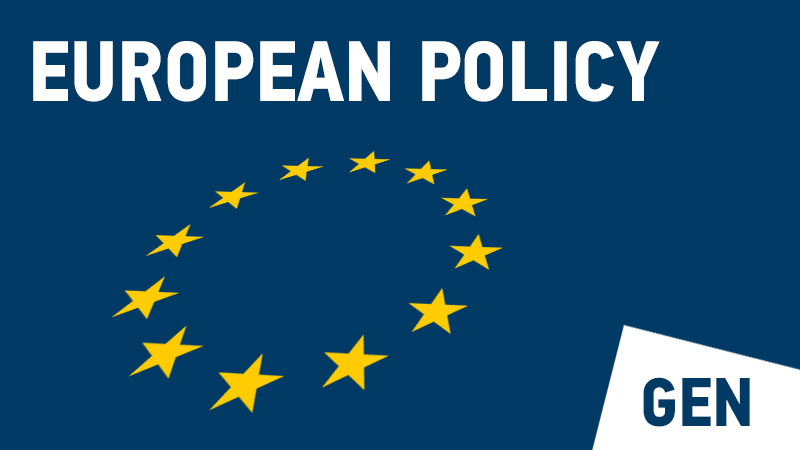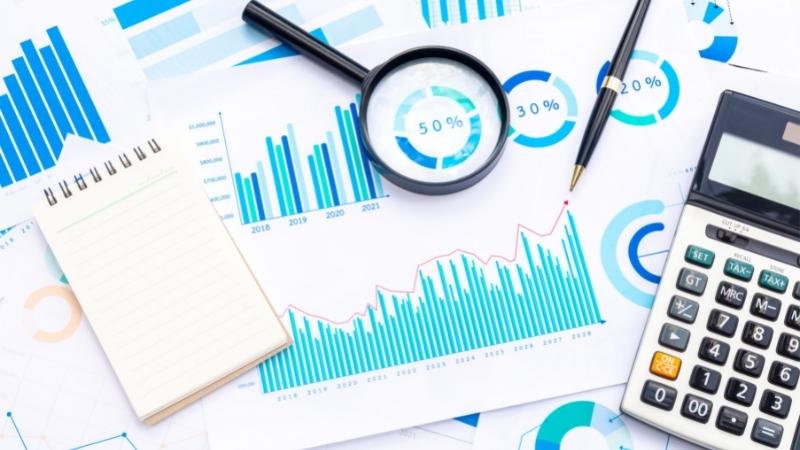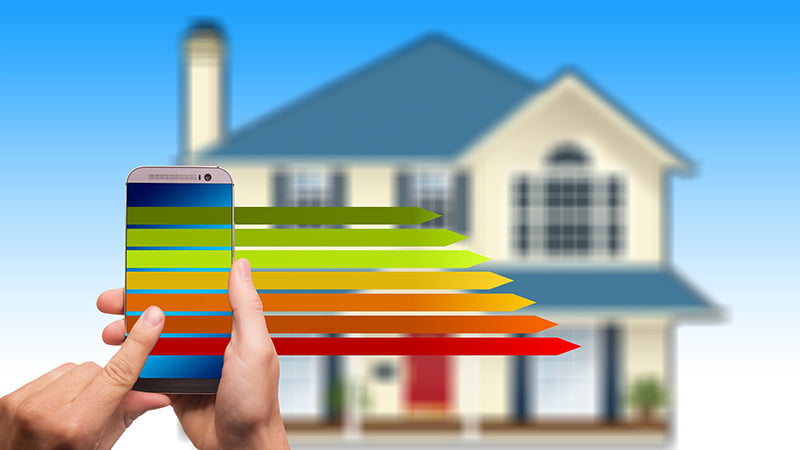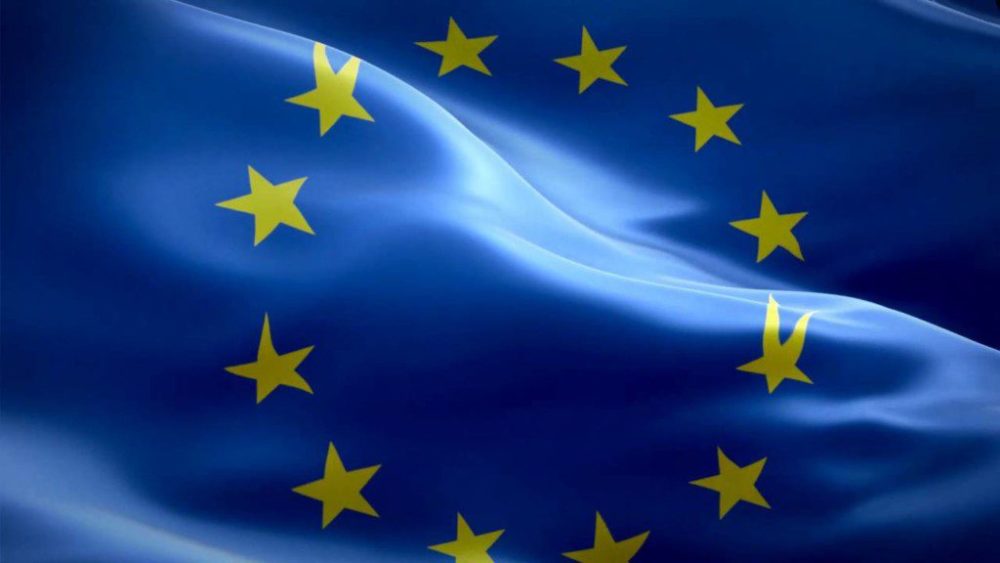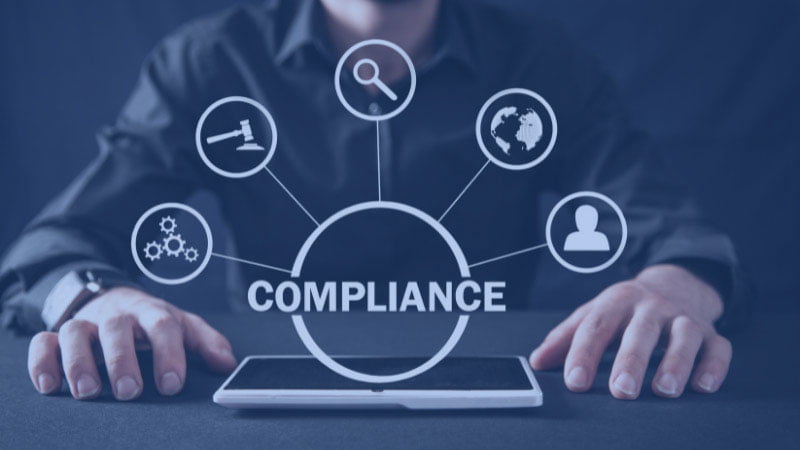GEN – 1478.00. On Thursday, 27 April, the European Commission held the Ecodesign and Energy Labelling Consultation Forum meeting on the review of the regulations on space and water heaters (Regulations EU 811/2013, 812/2013, 813/2013 and 814/2013).
Subject | Notes from the Consultation Forum on space and water heaters |
|---|---|
Date | Thursday, 27 April 2023 |
Time | 10:00-17:00h (Brussels Time) |
Venue | Centre Borschette |
Participants | Massimiliano Ferrario, Francesco Scuderi, Bert Meynckens, Mariano Covolo, Giacomo Di Stefano |
Agenda
Time | Agenda |
|---|---|
09:45 | Connection starts |
10:00 – 10:15 | Welcome and introduction Approval of minutes of CF meeting on External Power Supplies (16 February 2023), Adoption of the Agenda |
10:15 – 12:00 | Space heaters: review of the changes made to the 2021 working documents |
12:00 – 13:30 | Lunch break |
13:30 – 15:15 | Space heaters: review of the changes made to the 2021 working documents |
15:15 – 15:30 | Coffee break |
15:30 – 16:45 | Water heaters: review of the changes made to the 2021 working documents |
16:45 – 17:00 | AOB |
17:00 | End of the meeting |
Notes
European Commission delegation composed by Mr Rivière and Mr Niels Ladefoged.
Next steps
Deadline for comments after the meeting: 27 June 2023 (more likely 30 June 2023)
Introduction
COM: These are the most important ED&EL regulations. The last meeting was in 2021 but a new one was needed: many things have changed (political context, Ukraine invasion, energy prices, mandatory demand reduction measures) and the new proposal fits in the Fit for 55 and REPower EU among other initiatives and regulations. It can be seen as a part of the energy transition. The current regulation is ten years old. The European Commission has been progressing on the impact assessment work (it has been approved by the Board). We made some preliminary consideration on the LCC of the different equipment. In the meantime, many Fit-for-55 rules have been agreed: new ambitions on RED and EED; negotiations on EPBD. These measures will trigger a lot of changes.
Review Ecodesign and Energy label Hydronic space and water heaters
COM: space and water heater appliances in general are the largest energy consumers in the residential and commercial sectors, representing about half of the primary energy consumption. Almost 50% of the dwellings are heated by central hydronic space heaters. Looking at the consumption, most is related to fossil fuel.
COM: different studies published by IEA (“Net zero by 2050”) and JRC (“EU challenges of reducing fossil fuel use in buildings”) suggest how to reach the climate neutrality. Need to stop the sales of fossil fuel boilers starting from 2025 according to IEA and in two steps according to JRC depending on whether they are fueled with oil or natural gas.
LCC analysis have been undertaken considering the gas/electricity price ratio, purchase and installation costs, type of systems, occupied space: they show that heat pumps’ LCC becomes cost-effective by 2030. A/W heat pumps score best, GSHP for larger sizes.
Expansion of the market is expected to lower both product and installation costs. Despite lower LCCs, the overall initial costs of HP installation are a hurdle. Social climate fund could be one of the solutions to economically sustain the transition, in parallel with the heat pump action plan and the net-zero industry act. Innovation is starting to address the greatest weaknesses of HPs: high temperature, need for large space to install the outdoor unit and the noise.
Hydrogen role
There is no short-term role for hydrogen or e-fuels in the heating of buildings since it is not considered as a hard-to-decarbonize sector. The situation may change looking at 2050.
There are no specific requirements for H2-ready (or blending) boilers. Safety requirements are proposed to remain in GAR (Gas Appliance Regulation). In the future, the Energy Efficiency Directive may address a specific conversion coefficient for hydrogen.
Proposed MEPS for boilers
The most controversial part of the new draft is the increase of MEPS for all technologies to 115% in 2029. The second tier for energy efficiency requirements by 2029 does not ban boilers: they need to upgrade to hybrid heat pump or solar hybrid. TDHP and cogeneration are still allowed.
Other changes/corrections
“Solar hybrid” has been added to the scope of the regulation and the corrigendum removes the definition of “package of heater and solar device”.
The conversion coefficient has been updated (PEF changes every four years).
From 2025 there are some requirements related to modulation and monitoring that need to be respected only by those new models put on the market.
A technical meeting will be organised to identify additional test points required for TPCA by single Member States and evaluate if they need to be integrated in the regulation.
By September 2027 the commission will assess the feasibility to use the compensation method and introduce it in the regulation.
Main comments and replies
Ireland: Will all liquid fuel boilers be excluded?
COM: We do not distinguish between the fuel, we set efficiency requirements. By 2029 all stand-alone boilers cannot be put on the market anymore.
Cyprus: what is the GAR? Is definition-12 correct?
COM: GAR is designed for safety based on the content of the gas in the different MS. Each MS notifies the composition of the gas in the network and then the safety rules are established for harmonising them. We will double-check on definition-12.
Eurovent: we are in favour to have all the hydronic heat pump (including reversible) until 1 MW in scope of lot 1. Why in the preparatory study it was considered and now reversible heat pumps above 400 kW are excluded? We welcome the technical meeting on TPCA and would like to attend it. We always call to refer about the market surveillance regulation, in particular article 9.
EPEE: We have some comments related to the timing of introducing the monitoring requirements, we ask to postpone to 2029 also for new models. EPEE has a neutral position on introducing TPCA however we see there is a need to have an established notified body in place. If not in place there is a need to postpone TPCA and, in any case, limit it to 70 kW.
Germany: We will send written comments, please extend to 6-8 weeks the feedback period. In principle we agree with TPCA but for large space heaters laboratories lack. Not in favour to postpone the discussion to introduce the compensation method: should be introduced in a second tier.
EHPA: supports the mention of EPEE to delay the introduction of monitoring and TPCA since large amounts of models will be introduced. Support the commission conclusion that compensation method is not yet ready for mass use and need to be considered at a later stage.
EHI: possible to see IA prior the publication of the legislation?
COM: we normally don’t do that.
EHI: We believe that the 115% proposal for minimum requirements by 2029 will not be helpful for decarbonization of buildings. We need flexibility to adapt to many aspects (climate, insulation, available spaces, sound restrictions, etc.). We proposed in 2021 to phase-in renewable fuels. EPBD is not final but the parliament has said that green fuels can have a role. We invite to phase-in green fuels rather than banning technology.
COM: we are not against green fuels. They’re more expensive than natural gas. Replacing gas with green fuels imply a harder burden on people. However, we’re just saying that it needs to be used efficiently as other fuels.
Italy: Fully support to Germany for 8 weeks comment. Consider these words as a preliminary position. Italy has always stated that all green energy sources, included green fuels, and all technologies shall be allowed to be placed on the market even as stand-alone appliances. Our goal should be to increase the share of all technologies. Spare parts shall remain on the market. Right of consumer to have access to information to identify the most efficient product means that sufficient granularity must be assured. Personal comment on the introduction of TPCA: Italy has always been very critical. TPCA is a way to assess the product before placing on the market but market surveillance is the only one that can monitor the effective conformity when the product is placed on the market. We should think a lot about the introduction of TPCA. What happens if a product is found not-compliant on the market but was certified by TPCA?
COM: we will allow the eight weeks.
VHK: The proposal is not a technology-ban. All technologies are still on the table and all the fuels are on the table. Stand-alone is not banning the technology since they can be used in hybrid solution. We keep the focus on the efficiency.
Netherlands: we welcomed in the past TPCA that does not replace market surveillance action but make them more effective. Regarding the test method, we think that it could be a good solution to introduce earlier the compensation method. Support real time monitoring but in this case is not clear how consumers will use it, therefore ask for more flexibility.
COM: flexibility can’t be introduced because it is difficult.
Austria: agreed on 2029 phase out of liquid boilers, need for a second tier for gas boilers.
Poland: in reality this is a ban on boilers, 2029 is too close.
Norway confirms that although the penetration of heat pumps in the country is the highest in Europe, they still see that exemptions are needed.
Romania, Croatia and Slovakia are not ready for the change, they first need to adapt houses and network.
Belgium wants to move the second tier from 2029 to 2027.
Belgium and Germany ask to keep the H2 technology in the Ecodesign framework.
VHK: We are proposing a relatively small step forward with respect to something that other MS have already put in place regarding boilers. We couldn’t decide about hydrogen boiler, it is defined in the EED. If that directive decides that hydrogen can have a conversion factor, then it may be included. Ecodesign is setting standards for products, not for hydrogen. Can hydrogen be put in boilers? It is a decision of GAR. We’re not proposing safety measures.
Norway: We see more and more application where both electric boilers, combi boilers and water heaters are used smartly in the grid. That could provide more stable grid. Suggest implementing self-monitoring also for water heaters. We are very worried about ban of electric boiler and combi boiler in the second tier.
COM: it is not a ban boiler. If you want it, you have to combine it with other things.
Belgium: insulation has been mentioned. Impossible to replace energy from fuel with energy from electricity. ED has been explained that can do a small step toward decarbonisation. Keep the hydrogen for sector where it is not economically viable to electrify.
Austria: Compensation method is beneficial for market surveillance because the current methods require many data. In favour of it. How far is possible for a MS to set efficiency or emission limits stricter than the one of Ecodesign?
COM: With respect to ED, MS cannot set more strict requirements unless notifying the commission that need to allow for that. I don’t think that with the compensation method you can avoid having technician of manufacturers on the field.
Croatia: Energy efficiency comes first, and it can be reached only with installation of new heating and cooling after the insulation of the building. The typology of buildings in Croatia cannot change so quickly, heat pump cannot be installed anywhere. Price of heat pumps are several times higher than boilers. Electric grid is not ready.
COM: you point out several challenges, but the studies are very clear. We cannot meet the 2030 target if we only renovate heating system in buildings where we renovate the envelope. We have also to replace heating system. Hybrid solution could respond to some of the problem that you pointed out.
Denmark: We support the updated minimum requirements on space heaters. Second tier comes into force in 6 years. We support the scope extension to 1 MW. We are in favour of keeping the compensation method in the regulation as other MS proposed.
Germany: not in favour of sound power requirement, since they are outdated. Find a way to include hydrogen and green fuel boilers on the market, we will come back on that with comments (?).
Sweden: If we place on the market fuel boilers, they will be used by 2050. We would welcome an exemption/exception to solve the issue of affordability. We can’t anymore label gas boilers with A label.
COM: Exemptions, even if small, may include large loopholes.
Romania: We sympathize with Italy and Poland. Deadline of 2029 is too soon for us.
Czech Republic: We would like to stress the importance of price and technical feasibility for heat pumps.
COM: Financing challenge since in 2030 upfront costs will be still higher.
Spain: Support to the commission proposal
Slovakia (or Slovenia): Our electric grid will not be ready neither in 20 years for conversion towards electricity-based heating systems.
EPEE: Strong support on Tier 2 because heating devices installed in 2030 will be there in 2050. We also support the proposal from the commission to exclude the compensation method temporarily and introduce the CVP. Compensation method need to be finalised at CEN level.
EHPA: We support the minimum efficiency requirements from 2029. Propose to increase to 125%.
EHI: On one hand you say you don’t ban the fuel but on the other hand the energy label does not allow incentives for other things than heat pump. This is an indirect ban of this kind of appliances.
EUROVENT: Pending question about the scope. VHK: discuss it one on one, after this meeting.
Requirements Ecodesign and energy label
COM: Ecodesign updated. There was a mistake in cogeneration and for the rest is mainly the update of the primary energy factor that makes the difference.
COM: Class A have been increased otherwise ground-water heat pump would have been there from the beginning. Water source heat pumps are more efficient then the GSHP, however they were not used as BAT as it would have to big effect on the rest of the labels. WSHP will defined as GSHP, the values with water as heat source are therefore optional values.
COM: Annex II pag.6 point ix is very generic, will be detailed more in the future (it was an Eurovent speaking point)
COM: Modification on the power rate at which heat pumps sound power level is evaluated. There is the possibility to test between 2 and 7°C, the settings of the heat pump must be at point B.
EPEE: Why 170 instead of 164 for low temperature HP? We ask you to correct that.
COM: From the calculations it results 165, not 164.
EHPA: We support the introduction of self-monitoring but with some modifications. Limit to 70 kW its scope. Against the provision of instantaneous data since it is not relevant for any purpose. The average value is okay. We recommend testing the tolerances in points in line with the standards.
VHK: we can discuss on 70 kW. Instantaneous data are not stored, nothing different from what smart meters for solar or other things already do. Instantaneous data are relevant for installers to see what is wrong with the machine.
COM: there are already heat pumps with instant monitoring.
Germany: Support update of energy efficiencies and also on material efficiency and monitoring. Sound requirements are outdated and should reflect the state of the art. Reduce delivery to 5 days or one week.
EHI: On the energy label, if you look at the consumer study it supports that energy label does not trigger consumer to replace their technologies with a more efficient one. The label role is weak and will not help in decarbonisation. Why can’t we look at it as an instrument to improve this path in decarbonisation as EHI proposed in 2021? It does not support all the technologies. On the hybrids and the serial numbers: the serial number should be added at the end of the process since some of the components are made in different factories. Suggest replacing this requirement with the model’s name and providing instructions in order that installer knows what to do. Agree to remove from the scope Micro-CHP. On solar hybrids we see a threshold of 125%: this means that the boilers need to be combined with 50mq (?) solar panels. Support the point raised by EHPA on self-monitoring with some slight modification. Suggest that you align all the requirements with what is being discussed in the electricity market design review. Avoid the heaters to become smart meters: you don’t need that kind of information, other will take care of that.
VHK: Space and water heaters are not sold in shop, so they are different from other products covered by the ED and EL regulations. The main target for the label should be the installer for this kind of appliances, not the final user. The impact of subsidy is evident for heat pumps. We looked into the consumer study and the proposal presented by EHI, differently from what EHI said. Many consumers look at the efficiency number rather than to the arrow.
Italy: You can change the name, but it is a ban. This label lacks granularity. We need a second scale to allow consumer to purchase the better equipment within a technology. The consumer survey reveals obvious things. For the monitoring of real data, we have to look at the proposal in detail. We should balance the burden with what you want to achieve as effect. Information about our life home and information about our personal behaviour should not be given for free. Only on purpose consumers can decide to share personal data.
Netherlands: We had some large reservations with the earlier proposal on self-monitoring but now it seems more in line with our requests, in particular now the consumer is master of his data. Hesitant in changing the “delivery” into “sending” since spare parts can come from far east and comes by boat. Safer to keep “delivery”. Agrees on VHK comments on monitoring.
Austria: Support the comments made on sound power level, heat pumps need to reduce this important parameter to improve their diffusion. We will reconsider about the two scales and will dive into this again.
Eurovent: Share EPEE point on LT HP. Share EHPA on self-monitoring, suggestion to postpone it for new models and limit to the appliances covered also by EL. Same limit also for material efficiency and reinstate 15 days. What happen from a legal point of view if a manufacturer is not able to meet the deadline?
CEN: For heat pumps, when it is defrosting it does not make sense to provide the capacity since it is negative. Agrees with EHPA to define that the energy is provided as an average value. The tolerances should apply on the energy output, we need to make sure that those tolerance can be verified.
Sweden: Positive opinion to the energy efficiency requirement proposed. For LT heat pumps we have always thought that it was too low, so do not decrease it with respect to your proposal. We support the level of sound proposed and ask to not reduce the threshold: that can lead to an increase in price and also energy use because there is a trade-off to respect to have lower sound emissions. In some cases, noise is a problem, in other cases not but the label will help to solve that problem. The energy efficiency threshold should be the same for dedicated water heaters and combination heaters. Privacy of the consumers has been solved. More granularity is needed also on material efficiency, it can’t be the same requirement for 1 MW and 1 kW appliances. Proposes thresholds for to give more granularity. For the scale: we support the energy efficiency on the label. Class E is very big, divide it in two.
VHK: Regarding the delivery time, usually the spare parts are delivered to end users by dealers which stores spare parts of several manufacturers. Manufacturers must ensure that dealers send the spare parts within the timeframe by adding a special clause in the contract. Not agree with the proposal to align the scales of combi and dedicated water heater.
Denmark: Confused to hear that is possible to select between 2 and 7°C. We support the rescale of the energy label as well.
EHPA: Agree to limit the scope as Eurovent and maintain the 15 working days as other Lots. Common available tools are not really relevant, we need qualified personal to repair the heating appliances and can’t do with common available tool.
EPEE: Support to Eurovent and EHPA to limit the scope on material efficiency. We support the efficiency on the label.
JBC: Support the sound requirements, suggest to base them on P_rated condition. 15 days for delivery.
APPLiA: Support the point raised on the difference between Lot 1 and Lot 2 and the possibility to reach class B for best product among water heaters.
Water heaters and hot water storage tanks ECODESIGN Regulation – proposal 2023
COM: solutions mainly electric for water heating. Second tier in view of saving energy but not possible because more efficient solutions are less cost-efficient. We propose just a slightly adaption. Correction to multivalent tank has been reduced. More ambitious classes. Alignment with 50°C with 4 %, there was a mistake in the text.
- Tank solutions combi heaters are in discussion.
- MEPS of thanks were reduced with 1 class as cost were similar
- Alignment with 50°C with 4 %
- A class might change on storage tanks.
- Page 12 balancing point between gas and Hybrid. Point can be dynamic, but should be fixed within 2°C following ANEC.
- Granularity is too low, APPLiA wants to have some additional information like a second scale or star system.
- COM: Star system is not acceptable it should go via interoperability and the code of conduct.
- Storage tanks are now in A, if you follow the eco design, all the storage materials are made of foam. If PFAS comes in, then the tanks would come in to troubles.
APPLiA: Overall on Ecodesign we support the requirements. We have a number of technical issues and suggestions: one big concern on the energy label. The proposal was not given sufficient granularity to select the most efficient in the range the customer can access. We support the idea of Norway to consider the advantages of the storage or the second scale. Proposal to have a five-star system. We’ve seen nothing on the label to create something connected with the Code of Conduct. Consider that Energy Label will last 10 years. Suggestion to change threshold 50% to 49%.
COM: In the code of conduct we are trying to prepare the land for the implementation of smart products.
VHK: Can all appliance work at 20°C and 7°C?
APPLiA: Not all the appliances can work at 7°C outdoor. Some do not work in non-heated spaces.
Norway: Surprised that there is no formula for extra point in particular situations. More and more variable renewable energy and more unstable grids. Even as a country with a lot of hydraulic electricity production, the grid stability is a big issue and will become even a bigger issue in Norway. Do not think only on the product itself but also on how it will be integrated in the grid.
Netherland: We’re talking about efficiency and not about grid stability. Happy with the label proposed.
Italy: Opposite opinion with respect to Netherland. Smart grid opportunity to be introduced.
EHI: Supports APPLiA on the smartness indicator and the remove of F_control.
EHPA: Similar position as APPLiA for T_peak: combine the two proposals for Lot 1 and Lot 2. V40 does not support the measurement proposed. Regarding standing losses, they are stricter and our members are concerned by that: we will send back some comments on that.
VHK: There are no comments on the phase-change material, so we assume that the job has been done pretty well.
Any Other Business
COM: lot 21 will start very soon (unlikely before the summer according to informal discussion with VHK before the meeting)
COM: For Lot 1&2 adoption forecasted for this year. Next step is finalising the proposal based on the input received today. The Impact Assessment has been approved by the Board. They would like to adopt it after the EPBD but before the ESPR.
Eurovent: What is the status of the amendment to energy label for air conditioners?
COM: Working on it and new corrections to be made for displays. Some targeted consultations should be required, we’re expecting delays and must decide on next steps.
Recommended actions
Interested members are invited to assess the notes from the meeting and the related documents. The Eurovent position will be developed during the next PG-LCP-HP meeting on 02 May 2023.
Related documents and links
All related documents and articles can be found in the respective sections in the right sidebar.
- GEN – 1478.01 – Space Heaters CF_27-April-2023
- GEN – 1478.02 – Water Heaters CF_27-April-2023
- GEN – 1462.00 – Ecodesign and Energy Labelling Consultation Forum meetings Q1-Q2 2023 – update
- GEN – 1458.00 – Planning of the next Ecodesign and Energy Labelling Consultation Forum meetings Q1-Q2 2023
- GEN – 1272.00 – Ecodesign and Energy Labelling Consultation Forums: Updates, and working documents Lot 1-2
- GEN – 1272.01 – SPACE-HEATERS ED sent to CF
- GEN – 1272.02 – SPACE-HEATERS EL sent to CF
- GEN – 1272.03 – WATER-HEATERS ED sent to CF
- GEN – 1272.04 – WATER-HEATERS EL sent to CF
- GEN – 1272.05 – EXPLANATORY MEMORANDUM SH WH sent to CF
- PP – 2021-11-15 – Eurovent comments on Lot 1-2 following the CF of 27 28 September 2021.pdf
